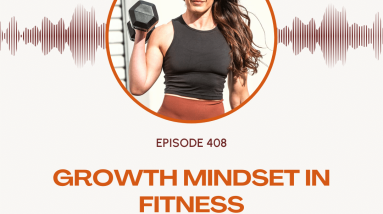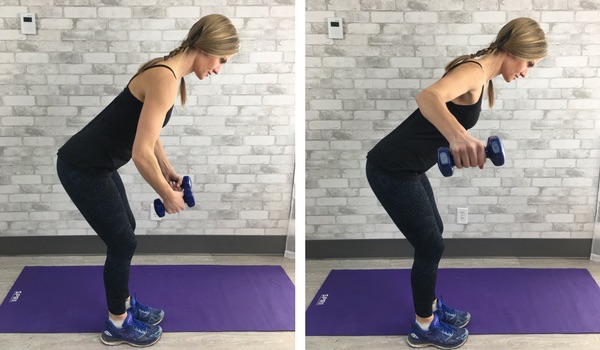
Jamal Browner Dominates Training for World Deadlift Championships, Conquering 410 Kilograms (903.8 Pounds) with 4 Reps
You can count the number of athletes who have verifiably deadlifted 500 kilograms (1,102.3 pounds) with one hand and you’d still have a finger free. Jamal Browner is one member of this highly exclusive strength club. He has lifted that massive amount with his signature sumo deadlift, but he’s recently been working with a conventional stance to prepare for his first strongman appearance.
Browner will compete for the first time in the 2023 World Deadlift Championships, which is part of the Giants Live 2023 Strongman World Open on Sept. 2, 2023 in Cardiff, Wales, and he’s been showing signs of steady progress. He offered evidence of his steady strength gains by sharing a recent conventional deadlift of four reps with 410 kilograms (903.8 pounds), which you can see in the Instagram post posted on June 29, 2023.
View this post on InstagramA post shared by Jamal Browner (@jamal_b15)
More from Breaking Muscle:
- Deadlift vs. Romanian Deadlift: Learn the Best Way to Hit Your Posterior Chain
- 7 Tips to Perfect Your Deadlift Form
Browner arrived at the barbell with a relatively close stance and his feet pointed straight ahead and grabbed the bar with the support of “figure-8” lifting straps. As per the rules of strongman competitions, a sumo stance is not permitted, while lifting straps are allowed. This is a significant difference from the powerlifting Browner is more familiar with. The only other supportive equipment he wore was a basic weightlifting belt.
Browner performed the first rep with ease, and followed quickly the second. The third was slightly slower, but he showed no major signs of struggling. He took an extra breath before beginning the fourth repetitions, but when it was completed, he held the lockout for a few seconds before returning the barbell to the floor.
With roughly nine weeks to go before the contest, Browner said in the post caption that he’s feeling good about his training and even felt that he could’ve added up to 10 kilograms to the bar and still performed the same reps with similar effort.
“Strength is trending in the right direction. I think I was good for another 7.5-10kg [16.5 to 22 pounds]. ”
Browner has pulled 435 kilograms (959 pounds) for a single in training as he familiarizes himself with the conventional stance. He has a long history of heavy lifts under his belt, but the recent challenge has been converting to the required conventional stance.
Browner is only the second-ever powerlifter to successfully complete a 455-kilogram (1,003-pound) deadlift at the 2022 United States Powerlifting Association (USPA) Raw Pro in September. Just a few months later, he pulled the same weight for two reps in training without the aid of lifting straps. Both of these were completed with a sumo stance.
View this post on InstagramA post shared by Jamal Browner (@jamal_b15)
More from Breaking Muscle:
- 6 Deadlift Benefits Everyone Should Know About
- Learn How to Build Strength with Three Key Principles
The upcoming deadlift contest will also serve as the opening event for the Strongman World Open contest. The 2022 World Deadlift Championship (WDC) was won by Rauno Heinla, who deadlifted 476 kilograms (1,049.4 pounds) to also set a Masters world record. Heinla will be in the contest to defend that title as well as try to win the overall contest.
2021 WDC champion Ivan Makarov will also be looking for another title. Makarov, himself, recently shared an impressive training update deadlifting the current record — 476 kilograms(1,049 pounds) — for two repetitions.
Even though Browner will be required to use the conventional foot placement, he will also be allowed to use lifting straps as well as a deadlift suit, which could help him greatly in this contest.
Featured Image: @jamal_b15 on Instagram
The post Jamal Browner Pulls 410 Kilograms (903.8 Pounds) for 4 Reps While Preparing for World Deadlift Championships appeared first on Breaking Muscle.

Unlocking Your Full Potential: Embracing a Growth Mindset in Fitness
How you view yourself and other people in the world around you influences all of the things you see, think, and do. This is especially true when it comes to your fitness and how you are able to create new healthy habits around your strength goals. Embracing a growth mindset, rather than a fixed mindset, can have a huge impact on your outcomes and your overall enjoyment in and out of the gym.
Click play to listen right on this page, no app is needed:
Or, listen on your favorite app: iTunes (Apple Podcasts) | Spotify | Stitcher
Want a free week of strength workouts? Click here to get started
Watch the Episode on YouTube Key Takeaways
If You Want to Embrace a Growth Mindset, You Should:
1) Look for examples in your life of times you have shown a growth mindset without realizing it
2) Reframe your challenges as opportunities
3) Collect evidence of your progress on a regular basis
Your Growth is Not Linear
Have you ever thought or said to yourself, ‘I’m just not built to do a pull-up’, or something along those lines? Believing that your qualities or characteristics are set in stone can keep you living in a fixed mindset. This is a common characteristic I see within my community, and it can leak out into other parts of your life and the way you view the world.
By challenging that belief and putting yourself in new and uncomfortable situations, you can stretch yourself and experience the magic that lies in the growth mindset.
Reframing Your Mindset
Strength training and life are about staying in the process and giving consistent effort, regardless of the outcome-based goal. By seeing the value in practice, you can seek out new challenges and experiences that leverage your strengths rather than trying to fix your weaknesses.
We all have days where it’s easier to stay stuck in your fixed mindset. But if you can stretch yourself enough to reframe the way you think about your obstacles, true growth can occur.
Are you ready to ditch your fixed mindset and embrace the growth mindset? Share your thoughts with me in the comments below.
In This Episode
- Why you need to give yourself some grace if you are struggling with mindset (1:44)
- Learn about fixed mindset and why it can hold you back from achieving your goals (3:42)
- Understanding the difference between a fixed mindset and a growth mindset and how it shows up in fitness (6:06)
- What you need to do to nudge past a fixed mindset and develop opportunity (10:25)
- How to leverage the idea of a growth mindset to further your goals in fitness and beyond (14:12)
Quotes
“Whatever you are trying to do, inevitably, challenges in mindset come up.” (2:19)
“As you work towards achieving your goals in fitness, strength, fueling your body in a way that supports performance. You need to do that by showing up consistently and implementing new behaviors; you’ll probably work on forming new habits, which is a great thing, and making different choices. And all of that is influenced by mindset.” (5:00)
“It’s not just about the outcome, it’s about the effort.” (11:32)
“If we don’t ever step up and accept challenges, because we don’t think we can be successful or we don’t think we can win at that thing, its a lot harder to reach our fitness goals.” (13:20)
Featured on the Show
Apply for Strength Nutrition Unlocked Here
Mindset Masterclass
Mindset: The New Psychology of Success by Carol Dweck
Follow Steph on Facebook | Twitter | Instagram | YouTube | Pinterest
I’d really love it if you would take 1 min and leave us a rating and review on iTunes!
Podcast production & marketing support by the team at Counterweight Creative
Support the Podcast
Get 20% off Legion Supplements with code STEPH (20% off your first order, double points on follow-up orders)
Get 10% off GORUCK with code FUELYOURSTRENGTH
Follow Steph on Instagram
Rate and review on Apple Podcasts
Related Episodes
Why You’re Struggling With Motivation To Workout
How To Build An Athlete Mindset Over 40
Growth Mindset in Fitness Transcript
Steph Gaudreau
I’ll never get a pull-up. It’s pointless to even try. If you’ve ever said something along these lines to yourself, this podcast episode is for you. We’re going to be talking about a key mindset shift you need to be aware of, and three ways that you can implement it so you get better results with your fitness. If you’re an athletic 40, something woman who loves lifting weights, challenging yourself, and doing hard shit, the Fuel Your Strength podcast is for you. You’ll learn how to eat, train and recover smarter, so you build strength and muscle, have more energy, and perform better in and out of the gym. I’m strength nutrition strategist and weightlifting coach, Steph Gaudreau.
The Fuel Your Strength podcast dives into evidence-based strategies for nutrition training and recovery. And why once you’re approaching your 40s and beyond, you need to do things a little differently than you did in your 20s. We’re here to challenge the limiting industry narratives about what women can and should do in training and beyond. If that sounds good, hit subscribe on your favorite podcast app, and let’s go.
What’s going on? Welcome back to the podcast. Thank you so much for being with me today. On the show, we’re going to be going over today a very common mindset challenge that I see in my community. And that includes my strength nutrition on lots of members. But also, those of you out on my Instagram, DM’s sending me emails in the IG comment section. This is just so very common. And I hope that by listening to this episode about this particular mindset challenge, getting some insight, and then a couple of tips you can maybe take away, you’ll understand how to keep an eye out for this particular mindset as it may show up in your life.
And just to know that in mid-life, especially I hear from so many of you that now you’re 40 or over and you’re trying to build your fitness, like you’re excited to get in there and lift weights, you’re trying to improve your cardiovascular fitness, whatever you’re trying to do put on some muscle you want to get stronger. And inevitably, challenges in mindset come up because this is a time when your body is changing. Physiologically, maybe there are things going on in your life that are making it challenging, right? A lot of shifts go on in this period of life, and a lot of stressors come on. So how can you gain a little bit of insight into this very common mindset challenge? So this episode is going to be kind of on the shorter side, but still hopefully bring you lots of quality content. And of course, if you’ve missed any of the recent episodes, and you want to keep listening, go ahead and dive back into the archive.
Before we dive in, if you listen to this episode, and you’re like, Okay, I am ready to get to work. I want to take my strength, muscle energy, and performance and take it up a notch, I want to take it to that next level, I want to feel like a badass, but at the same time, do it in a way that works with my physiology as an athletic woman over 40 with coaching and community support. And go ahead and check out Strength Nutrition Unlocked. This is my group program, we’re going to lay out the framework for you and guide you as you implement and really customize it to all the things that you’re doing your preferences, your likes, and the places you want to go with it, then go ahead and get onboard, you can start your process by submitting an application at StephGaudreau.com/apply. We would love to hear from you and see you inside the program.
Okay, so today we’re going to talk about fixed mindset. And I gave you an example at the top of the show, I hear this all the time, you know, I’ll just never get to pull up like why bother trying? And it’s just one, just one tiny example of other types of fixed mindsets that do occur in the realm of fitness. Quick disclaimer, before I go any further, I am not a psychologist, nor am I a mental health professional. I am a sports nutritionist, a strength coach, and somebody who’s worked with 1000s. At this point, women are on topics where mindset does intersect. I also happen to have recently pursued a health mindset coaching certification, so that I can really take my skills in this area to the next level and serve my clients a lot better. So this is really top of mind.
But truly every client that I interact with, whether it’s my strict nutritional locked members, or my one on one client’s mindset is at some point going to come up because as you work toward achieving your goals in fitness and strength, you’re trying to fuel your body in a way that supports performance. You need to do that by showing up consistently and implementing new behaviors. You’ll probably work on forming new habits, which is a great thing and making different choices. And all of that is influenced by mindset. Now there there’s far more to the topic of fixed and growth mindset than I’m going to talk about here on this episode. But suffice to say, it’s worth checking out. And if you want to go a little bit deeper on this topic of mindset, and fitness, I really encourage you to check out the masterclass that I have on this and you can find that at StephGaudreau.com/masterclass.
So what is ‘mindset’, just a quick and dirty definition, here it is your viewpoints on yourself and other people in the world around you that influence all the things that you think, feel, and do. So that’s just a super quick definition. But we know that mindset is studied in psychology, there are so many evidence-based practices out there. And so it’s something that does influence and does intersect your ability to commute, continue to show up, do your training and get into the gym. Let’s then take a quick moment and define what is a fixed mindset versus its partner the growth mindset. So first and foremost, this concept of fixed versus growth mindset originated with psychologist, Carol Dweck, who began studying this in the 1970s.
And then in 2006, she published a book called ‘Mindset, the new Psychology of Success, How We Can Learn to Fulfill Our Potential’. I actually first learned of Carol Dweck’s work when I was a high school teacher. So this takes me back quite a few years to be in the classroom, and really trying to understand how students learn and how we can use the concept of growth mindset to help our students now, it turns out that this concept has now been applied to lots of different areas, including fitness. So what is a fixed mindset? A fixed mindset is the viewpoint that qualities and characteristics are set in stone. And that success, your success is due to things like talent, or the traits that you were born with. And so, as it implies, fixed, means it can’t change. Why this is challenging for people is it can make failures and setbacks seem completely insurmountable.
As you can never improve, you can never get past the setback, or the roadblock that you just encountered, especially if we’re talking about your training in the gym, obviously, that’s the context we’re talking about here. Or that you’re just naturally bad at things that are challenging. So you know, I’ll just never be good at getting a pull-up. Sometimes people will say things like that, you know, it’s never going to happen. Like, no matter how hard I try, it’s just never going to, it’s never going to be something that I can do. So if we have this idea that there is a fixed mindset, where does it show up for people in fitness, I gave the example again, of pull-ups. But here are some more think-about examples that you’ve heard, or things that you’ve said, or pay attention to the language here that you might have heard of. So you might hear people say, I’m just not good at fitness, and I never will be, it’s just not going to happen for me. Right?
My lifting isn’t getting, it’s not improving very quickly, or it’s not getting better fast enough, I’ll never get the hang of this, again, it is a little bit more common, and people who are newer to lifting or newer to fitness or newer to the gym. But that idea that you know, it’s just not happening quickly. And so it’s never going to kick in like I’m never going to get better at this. I’m too old to start lifting weights if I had $1. For every time I’ve seen this or heard this, you know, it’s just too late. I’m 40, or I’m over 40 now and you know, like I missed the boat, I have bad genes or have bad genetics, right? Nobody in my family is athletic. I don’t come from an athletic family or I don’t come from a family that people were good at these sorts of things. You might have also heard things like I’ve tried lifting before, but never really saw. It didn’t do anything for me. Right? I never really saw any benefits didn’t really do anything. It’s just not worth the effort. I heard this one a lot.
Well, Steph is easy for you. You’ve been athletic your whole life. And I haven’t, or, you know, they’re really good at that because they are just naturally athletic. And I’m not therefore I won’t ever be good at that. And this one, I hear quite a bit, that hiring a coach means I’m a failure. And I couldn’t do it myself. So, therefore, I’m not going to take that step. I’m going to keep trying on my own even though it’s, you know, it’s not really getting me anywhere. If I go and hire a coach or a professional somebody to help me with my programming or helped me with my nutrition. It just means I’m admitting defeat or it means I am a failure. Not even that I wasn’t being successful at the behavior change but that I didn’t internalize it as a failure. So, of course, there are tons of other examples. These are just a few.
So the next part of this is what do I do instead? What do you work on instead? Or what is necessary to start nudging past? This very fixed mindset, right? To see the opportunity? So instead, we work on developing a growth mindset. So growth mindset, and a fixed mindset, are the two things that Carol Dweck really describes. And how we can define it or describe it, right? You can think about it is basically going to be the opposite of the things I talked about. But a growth mindset is the belief that you can be successful because you put in effort, you learn from mistakes, or setbacks, and you persevere in the face of challenges. This is huge. And as soon as I started to coach little kids, so I coach little kids jujitsu, there are between the ages of four and seven.
The average age, the average age is like a kindergartner. And some of them are very competitive, which Hello, I definitely see my childhood, and maybe even current self in some of those students, like very competitive, they want to win every game, they get upset when they don’t win. So one of the things I always tell them is, did you try your hardest, we talked about the value of giving effort, and why that really, really matters. It’s not just about the outcome, it’s about the effort. So that’s really huge. And you know, if we think about it, that is one of the characteristics of encouraging a growth mindset. People with growth mindsets, see failures, and setbacks as opportunities for learning. And again, further growth. And this is really important, because sometimes when you have a very fixed mindset, for example, about fitness, you may not even try something because you’re sort of convinced that you’re not going to be successful, right?
You’re, you’re like, This is going to be too hard. And, that’s the great part about fitness is that we know if we stretch ourselves a little bit, that’s where the magic is. The growth literally is in picking up that slightly heavier set of dumbbells, or whatever that thing is. Recently, I was reviewing one of my clients, exercise logs, and she wrote something like, she picked up the 35-pound kettlebells just to see what would happen. And then she’s like, turned out it was too heavy. So I went back down. And I was like, that’s huge, because you went to the next challenging step right? The next challenging Wait, you tried it out, even though it didn’t happen? Yet, right? So you picked up the heavier set of weights to try what would happen and see what would happen.
That right there like taking that challenge on is how we get stronger. If we think about it from a physiological level, or how we become fitter or how we become more we improve our capacity, we improve our endurance, for example, is that we progressively do harder things, we recover from them, of course, and we eat an appropriate amount of food, which is a completely other podcast. As you know. However, if we don’t ever step up and accept challenges, because we don’t think we can be successful, or we don’t think we can win, and that thing, then we may see that artwork, it’s a lot harder to reach our fitness goals. For example, people with a growth mindset see value in practice and effort, as I mentioned earlier, so they see value in attaining the skills not only attaining the outcome, right? So attaining the skill or practicing the skill, making the skill more efficient. And they appreciate the opportunity for feedback as a chance to improve.
This one is really hard, I will admit, sometimes hard for me as well. But they see feedback as a chance to improve not something like a personal attack, right? They seek out challenges and new experiences. So think about in fitness, with your lifting with your cardio with whatever skill you’re trying to acquire, maybe you’re trying to improve your mobility. How can you leverage this idea of a growth mindset to further your goals in these areas? So here are three examples of things to think about. The first one, so what do we do? For like, Okay, I realized I have a little bit of a fixed mindset here, how can I nudge in the direction of a growth mindset? There are so many examples of this, I have only scratched the surface. But here are some takeaways for you. Number one, look for examples in your life where you’ve actually shown a growth mindset.
Because chances are you’re not just only one way or only the other. You’re not only having a fixed mindset about every single thing in your life. Neither do you probably have a growth mindset about everything in your life? It’s all about nudging toward that direction. So is there a challenge? Is there something in your life that you’ve learned? Something you’ve improved, where you have displayed a growth mindset, you have displayed tenacity you have learned from your mistakes, you have noticed the value of feedback from others, you have continued to put in effort, right? You have believed that it wasn’t just something you were born with. So think about an example where you’ve displayed that growth mindset and how can you leverage that? Right? leverage your strengths, not just always try to fix your weaknesses, and reframe challenges as opportunities.
What is the opportunity here? And I think this is really important. And when we have students come into Strength, Nutrition, Unlocked, they go before they even go into anything regarding nutrition, lifting or recovery, right? Any of that we start with mindset. And it’s really about looking for the opportunity, what is the opportunity here to change something. And the third one is to collect evidence of your progress on a regular basis, this could be so many things, but in the context of lifting, it could be something like, Am I recording my workout, so some kind of autoregulation or maybe even taking video of yourself, right video is hugely powerful. And it’s a great way to notice what’s improving, or what’s changing. As you continue, to live, you don’t have to collect data on every single thing.
But it can be really powerful evidence of how you are continuing to actually stay in the process and give consistent effort, not just to get the outcome-based goal, but also to engage in the process, right to keep implementing the behaviors over time. That is really what matters. So if you’re not collecting any evidence of your progress, it can feel like you’re not making any progress, especially if you’re sort of not aware of what your goals actually are. And that’s a whole other conversation altogether.
Alright, let’s summarize this episode, you learn what is a fixed mindset. And what are its characteristics that we defined, what is a growth mindset, we also looked at some ways that a fixed mindset might show up in training or with fitness. And there are so many other examples that we didn’t even touch on with nutrition and recovery and all of the other pieces. And then we also looked at three ways that you can start to lean into this idea of a growth mindset.
Of course, this is not an exhaustive podcast on this topic, but just a little taste. So if you want to go further and get the full masterclass that I did on this topic, then go ahead and check out StephGaudreau.com/masterclass, of course. And if you’re ready to jump right in, you want coaching you’re ready to like, let’s walk and go and do this, then we want to support you in strength nutrition unlocked. That’s our group program where we dive into these topics and more. So go ahead and check that out at StephGaudreau.com/apply.
Finally, hit that subscribe button on your favorite podcast platform. It really does help so much. And also hit subscribe, and the bell for notifications over on YouTube. And stay tuned for the next episode in this little series where we’re going to be talking about the next mindset challenge that is so common for athletic women over the age of 40 who are trying to improve their fitness. Until then, stay strong.

8 Effective Exercises to Alleviate Shoulder Discomfort
Shoulder pain can be very disruptive to your everyday life. And shoulder injuries can be complicated, so you’ll want to understand the shoulder itself and the different possible injuries before you begin with any of our exercises for shoulder pain.
If you have ever injured or hurt your shoulder, you know that lifting grocery bags, carrying a purse or even just trying to open a door can be impossible. But I am here to help!
PLEASE NOTE: These exercises are not prescriptions specifically designed for you. Please see your doctor or physical therapist and find your specific injury and prescription for healing.
Pendulum Swing
 Photo Credit: Get Healthy U
Photo Credit: Get Healthy U
Equipment: None
Repetitions: 2 sets of 10; 5-6 days a week
Prepare your shoulder and warm it up with this move. Lean over a countertop or table, placing the non-injured hand on the table for support. Let your other arm hang freely at your side, then gently begin to swing it forward and back., side to side, and in a circular motion.
Door Jam Stretch
 Photo Credit: Get Healthy U
Photo Credit: Get Healthy U
Equipment: None
Repetitions: 5; 5-6 days a week
Stand in an open doorway and grip the hands to the side of the doorway slightly below shoulder height. Put one foot in front and one behind, then lean slightly forward until you feel a light stretch. This is the start position. Now, with your spine straight, shift your weight into your toes until you feel a stretch in your shoulders. Do not overstretch. Pause for a moment, then roll back. Repeat five times.
Chair Shoulder Press-Ups
 Photo Credit: Get Healthy U
Photo Credit: Get Healthy U
Equipment: None
Repetitions: 5; 5-6 days a week
Sit upright in a chair that has arms. Start by placing your arms on the chair arms and lengthen your spine to sit as tall as possible with your feet on the floor. Use your arms to lift your body slightly off the chair while simultaneously pulling your shoulder blades down behind you. Hold for 5 seconds, then lower back to seated. Repeat five times.
Shoulder Band Pull
 Photo Credit: Get Healthy U
Photo Credit: Get Healthy U
Equipment: Elastic Band or Tubing
Repetitions: 5-8 per arm; 4-5 days a week
Attach elastic tubing to a doorknob at home. Face the door holding the tube with your hand. Gently pull the elastic tubing toward your body with your elbow bent, keeping your arms close to your ribs. Hold for five counts, then slowly release. Keep your shoulder down, and don’t “scrunch.” Repeat five times; switch arms. (good to work both sides!)
Side-Lying External Rotation
 Photo Credit: Get Healthy U
Photo Credit: Get Healthy U
Equipment: light dumbbells
Repetitions: 8-10 per arm, 4-5 days a week
Lie on a firm, flat surface on the side of your healthy arm with a pillow or blanket under your head. Place the hand of your healthy arm under your head and hold the dumbbell in the hand of the injured arm, palm down and elbow bent 90 degrees. Raise the dumbbell slowly until the arm is at a vertical position (a pillow underneath this arm can be helpful for stability), then slowly lower down. (Switch sides if desired – it is good to work both shoulders)
Side-Lying Internal Rotation
 Photo Credit: Get Healthy U
Photo Credit: Get Healthy U
Equipment: light dumbbells (1-2 pounds) or soup cans
Repetitions: 8-10, 4-5 days a week
Lie on a firm, flat surface on the side of your injured arm with a pillow or blanket under your head. Hold the injured arm against your side, elbow bent at a 90-degree angle, and holding a dumbbell. Raise the dumbbell slowly until the arm is at a vertical position, then slowly lower down. (Switch sides if desired – it is good to work both shoulders)
Dumbbell Reverse Fly
 Photo Credit: Get Healthy U
Photo Credit: Get Healthy U
Equipment: light dumbbells (1-2 pounds) or soup cans
Repetitions: 8-10, 4-5 days a week.
Hold 3-5 pound dumbbells and stand with feet hip-width apart, hinge forward slightly from the hips keeping abs tight. Slowly raise your arms, extending them away from the body without shrugging your shoulders. Let elbows lead the way with hands follow. Release down slowly. Repeat ten times.
Wall Push-Ups
 Photo Credit: Get Healthy U
Photo Credit: Get Healthy U
Equipment: None
Repetitions: 8-10; 4-5 days a week
Stand facing a wall with your hands on the wall shoulder-width apart. Slowly perform a push-up, lowering your chest toward the wall slowly, then pressing back. Elbows should angle behind you, not point straight out to the side.
9 Tips For Joint Health | Keep Your Joints Healthy As You Age  Photo Credit: Shutterstock
Photo Credit: Shutterstock
Keep your joints healthy is key to staying mobile and not experiencing pain as you age. Although you may not be able to prevent all join injuries or arthritis, there are many things you can start doing today to help keep your joints healthy.
Let’s explore some common causes of joint pain and then delve into 9 keys to keeping your joints healthy and some ideas on what you can do if you’re currently experiencing joint pain.
9 Tips For Joint Health | Keep Your Joints Healthy As You Age
9 Hip-Strengthening Exercises for Seniors  Photo Credit: Shutterstock
Photo Credit: Shutterstock
As the largest joint in your body, your hips play a central role in healthy aging. These mighty structures enable you to perform a wide range of daily activities, from standing to walking to climbing stairs. So it’s hardly surprising that hip weakness and pain can be debilitating to your everyday life which is these hip exercises for seniors should not be missed. The consequences of weak hips only get worse as you age.
9 Hip-Strengthening Exercises for Seniors

Indulge in the Ultimate Double Chocolate Protein Smoothie to Fuel Your Fitness Journey
Once you’re done crushing the Job 1 + Bike 1 Super Blocks with Jennifer Jacobs, you deserve a drink.
More specifically, JJ’s special Double Chocolate Protein Smoothie, made with Chocolate Shakeology AND Beachbody Performance Chocolate Recover.
(Pro tip: Click here to learn how Recover can help your muscles bounce back after a killer workout.)
Drinking this doubly delicious shake is the perfect way to end every workout in Jennifer’s Super Blocks.
Watch her make it below!



Print The Job 1 Double Chocolate Protein Smoothie
- 1 cup / 240 ml water
- 2-3 ice cubes (optional)
- 1 scoop Chocolate Shakeology
- ½ scoop Beachbody Performance Chocolate Recover
- ½ large banana, chopped, frozen
-
Place water, ice (if using), Shakeology, Recover, and banana in blender; cover. Blend until smooth; serve immediately.
Nutrition
Container Equivalents
Because Beachbody Performance Recover isn’t being used as post-workout “targeted nutrition” in this recipe, it is counted in the container equivalents.
1 Purple
1½ Red
2B Mindset Plate It!This recipe makes a great breakfast.
View this post on Instagram
A post shared by Daily Dose Of Dense Nutrition (@shakeology)
The post Job 1 Double Chocolate Protein Smoothie appeared first on BODi.










